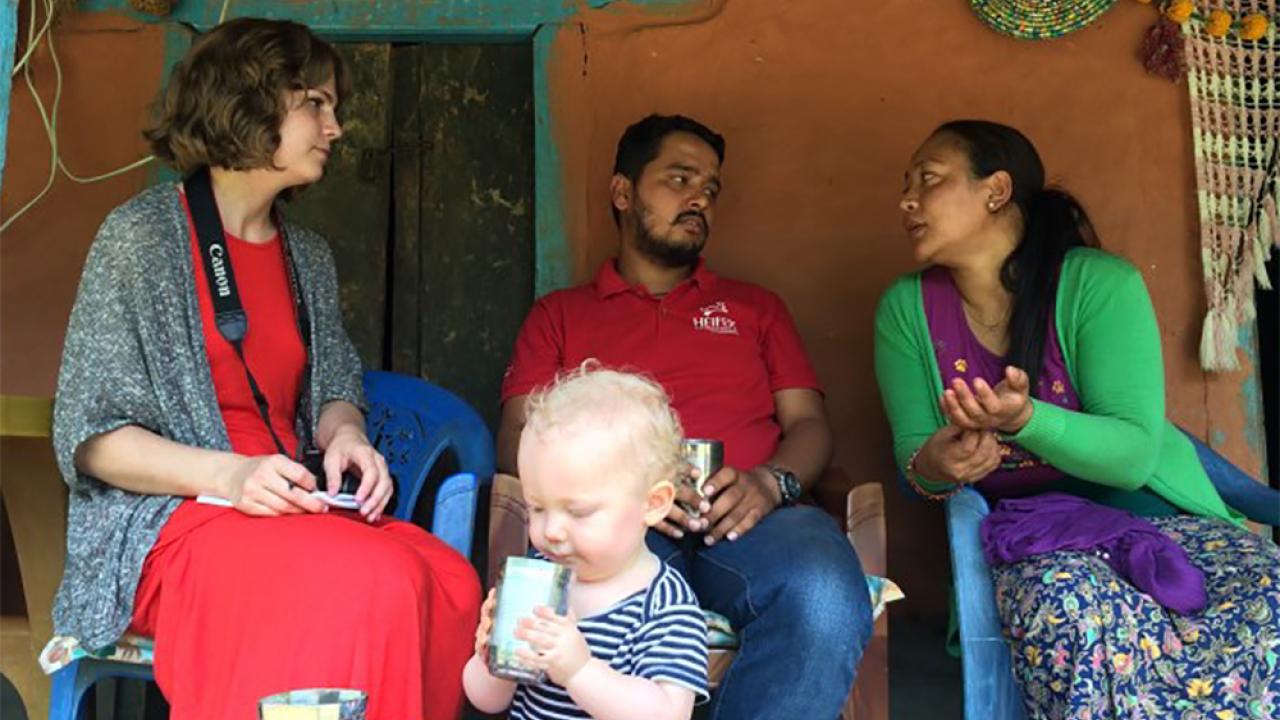
AMA Innovation Lab Research Assistant Honored for Study on Rural Migration in Nepal
Savannah Noray began studying development economics because she wanted to be a part of something with a larger goal of making the world a better place.
“With development economics I saw a clear connection between this goal and studying economics,” says Noray. “I thought this is perfect for me and that’s where I am now.”
Noray just won an prestigious honorable mention from the Agricultural & Applied Economics Association (AAEA) for her master’s thesis on how men’s migration in Nepal affects women’s decision-making power in the household. The thesis was based on data she collected as a research assistant on an AMA Innovation Lab randomized controlled trial (RCT).
“Her attention to detail in the thesis is laudable,” says Sarah Janzen, who was Noray’s mentor and thesis advisor at Montana State University. “The thesis makes a unique contribution to the literature on rural migration. It also contributes to the study of intra-household bargaining within the field of international agricultural development.”
Janzen, an assistant professor of applied economics, is a principal investigator on the AMA Innovation Lab project that was the basis for Noray’s thesis. The broader project, “Evaluation of the Welfare Impacts of a Livestock Transfer Program in Nepal,” sought to disentangle the impacts of a Heifer International social protection program’s asset transfer on the one hand and human and social capital development work on the other.
Noray met Janzen in 2015 during her first semester at Montana State University when she was learning about the various research projects underway in her department. At the time Noray didn’t know anything about RCTs or how they work. She also didn’t know that economists, Janzen included, were using RCTs to quantitatively study women’s empowerment.
“She introduced me to a whole new side of research,” says Noray.
As Janzen’s research assistant, Noray worked with Nepali institutional partners to implement a midline household survey to over 3,000 rural women. She also helped launch the first full-scale pilot of the project-level Women’s Empowerment in Agriculture Index (pro-WEAI) survey to approximately 2,000 rural Nepali men and women.
For her thesis, Noray focused on how men’s migration away from the home shifts how decisions are made. She found that decision-making power does shift to women, but she found no resulting change in household investments in children. This finding goes against the common assumption that when women have more say in household spending, they spend more on their children.
“From a justice standpoint, promoting women’s empowerment is a good thing,” says Noray. “So whether or not we promote it shouldn't necessarily depend on empirical findings such as ours. Besides, differing local contexts produce a lot of variation in empirical studies on this topic.”
In other words, Noray's findings depend a lot on the local context, and those can vary a lot. People in different areas have different preferences and also different opportunities and costs for investing in children.
“You can’t lump evidence form one side or another that says everywhere women who have more control spend more on their kids,” says Noray. “I don’t know that it has the same answer everywhere.”
The study so far leaves some questions in Nepal unanswered, though a two-year academic program is a short amount of time to complete a study of this complexity. Noray and Janzen are currently expanding their analysis into a paper that will incorporate a new round of data to add precision to the results.
Noray is now a research fellow at the Harvard Kennedy School’s Evidence for Policy Design program and is working in India on a project led by Rohini Pande, the Rafik Hariri Professor of International Political Economy. Noray hopes to continue field research, most likely in South Asia.
She says she has learned a lot from working in the field. One important lesson was to come into a research setting with no preconceived notions about how people participating in a study lead their lives.
“Understanding how little you know is important,” says Noray.
Media contact:
Alex Russell, (530) 752-4798, parussell@ucdavis.edu
